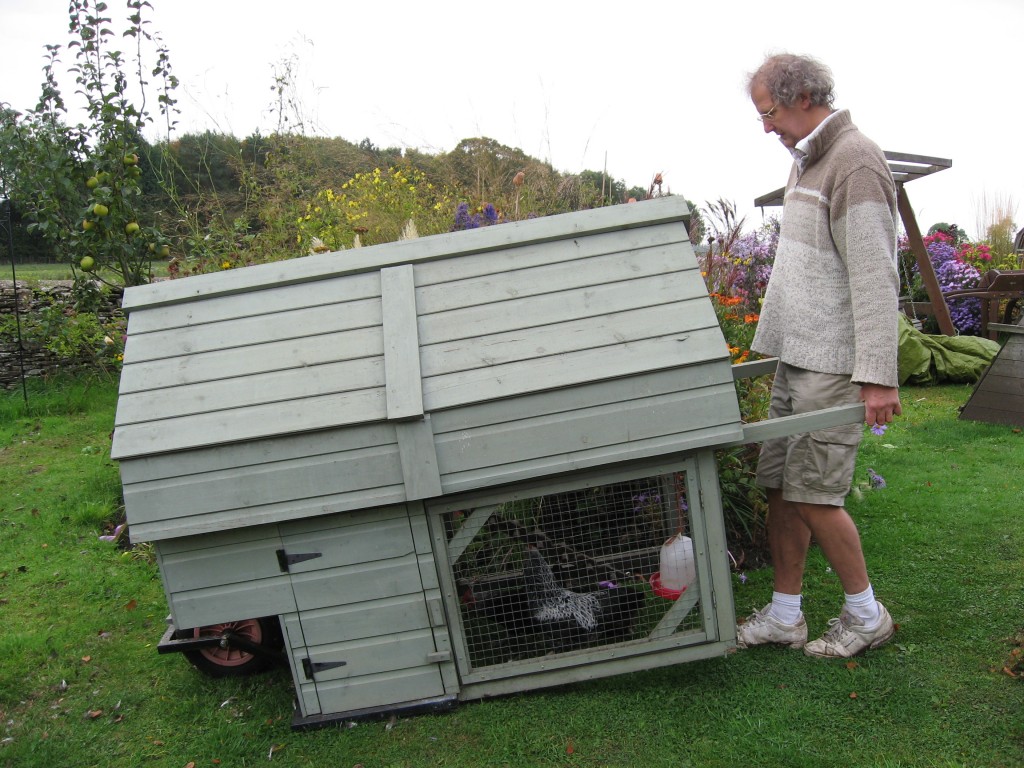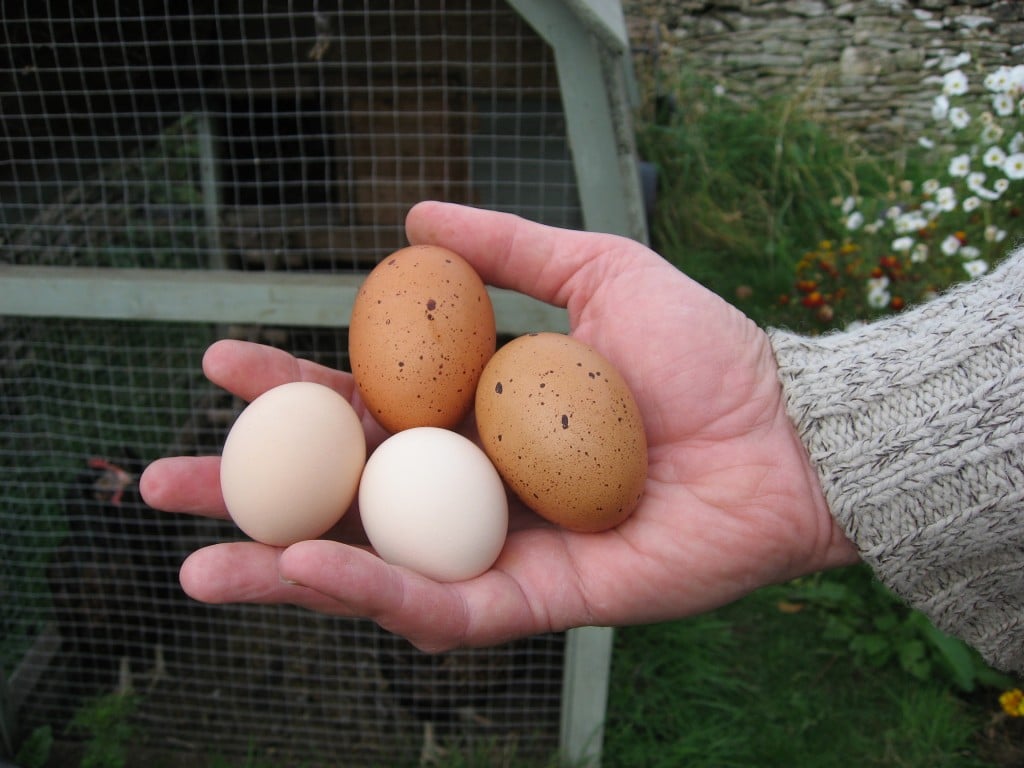I had an interesting childhood in multicultural London and I was the only girl for all the other family members of my own age were chaps, either brothers or cousins. It has had its advantages. I know all the fielding positions in cricket and I can explain the off-side rule in football. In fact I’ll watch anything with a ball if the men are wearing shorts. On the debit side I wore hand me down dungarees and got my haircut, a short back and sides no less, at the barbers under Montague Burtons – he of the ‘Full Monty’.

It goes without saying that I know how the male mind works and I didn’t even have to read Men are from Mars, Women are from Venus. So roughly ten years ago on a March day the Best Beloved (who I can read like a book) was firmly out manoeuvred when we stopped at a chicken farm in the Forest of Dean. I fell in love with a trio of Silver Sussex bantams but, before the best beloved parted with cash for coop and hens, I had to promise to make them my responsibility. And just like the small girl who says she’ll clean out the guinea pig but never does, I opened my eyes widely and smiled and pledged faithfully that I would look after them. He would have to do nothing.
Bah humbug! Of course it has fallen to the rufty-tufty one ever since, even though he made a portable chicken house, a bit like a wheelbarrow, for me to push round the garden every day. I had the common sense to declare it far too heavy for me the first time I lifted it. I had kept chickens before so the Best Beloved gets the full culinary range from omelettes to souffles, from meringue to creme brûlée for when you have chickens you have eggs aplenty for most of the year and they demand your attention. The trouble is when you really need them, as you tackle the family’s Christmas cakes and puddings in November for instance, there are none to be had. The bantams take a sabbatical between late October and mid-February in most years.
They also moult and stop laying in late-July when we have a cluster of family birthdays and then I have to buy eggs and jolly expensive they are. They’re also anaemic, watery affairs compared to a really fresh egg that clings together as if it were confined by an invisible straight jacket. So we continue to have chickens in the garden, for their egg-ceptional eggs – sorry!
In the winter they go into the fruit cage and devour grubs and insects. In the spring they reside on the vegetable garden and hopefully perform the same pest control. However in the summer they are restricted to the lawn and they ruin it by dust bathing in dry weather and digging down towards Australia when it’s wet. Every autumn the lawn has to be patched and repaired – by the Best Beloved!
They don’t tell you about the down sides in the life style magazines full of fluffy chicks. And they certainly don’t tell you that chickens attract rats and those rats manage to get into your garden shed and devour any fertiliser or anything else edible. One year I got very spooked by some missing First Early ‘Lady Christl’ seed potatoes meant for the garden rather than the allotment. Sharp words were exchanged until the penny ( or was it the rat) finally dropped. They had been taste tested by rats, who had left ‘Foremost’ well alone. It’s an endorsement of a sort I suppose, for they are a great early potato.

We took action and bought a humane rat trap, which caught one handsome creature which made a lot of distressing noises that attracted more rats. The Best Beloved drove the afore mentioned prisoner a good few miles away, released him, and reinstalled the trap. We never caught another. It seems that rats are intelligent creatures, so went for the savage neck-breaking version of a giant mouse trap with a spring. We had to place it under a wheelbarrow to stop the fingers of small grandchildren from being snapped off, but something hidden under an upturned wheelbarrow actually lures small children in rather than deterring them.
It reminded me of my days as a teacher in rural Warwickshire. The school field kept getting dog mess and my solution was to place lots of buckets over the whoopsies until the caretaker could remove them later in the day. We had a school inspector that day and our headteacher ( a wonderful man) was attracted to the upturned buckets rather as my grandchildren were to the upturned wheelbarrow. Thinking he was about to uncover some exciting school experiment, he lifted the first bucket with great ceremony only for his chin to fall downwards.
I was not very popular for a week or two, but thankfully he forgave me. It was deja vu, code for water off a duck’s back, for another much less nicer headteacher had once buried a green shoe box full of our coloured pencils instead of the class guinea pig – in a shoe box as well. We returned a week or so later to a dreadful pong and had to exhume the pencils.
We ring our chickens and the Best Beloved, a scientist through and through, weighs and records every egg and then draws graphs to compare our Australorps, black docile chickens, with our the two old Silver Sussex bantam survivors that are now nearly nine years old. One of these old ladies, named Greenie because of the ring on her leg, is trouble. She escapes all the time so I call her Greenie Houdini, because she can get out of any gap however small.
Greenie Houdine will be used for breeding and the thought of a nine-year old hen being ravaged by a young cockerel, albeit a gentle Australorp, almost compensates for the damage she has done when she’s out scattering snowdrop buds, or pecking lettuce, or eating strawberries!
Time to make another cake – before the eggs overwhelm me!











